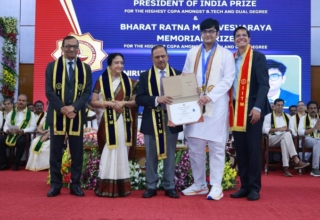AT A RECENT EVENT IN DELHI, THE VICE-chancellor of central university Jammu, Prof Ashok Aima, who for a long period headed the department of business studies at Jammu University prior to his current appointment, made a proposal to Kashmir Pandits in ‘exile’ to set up a university for their boys and girls. Prof Aima had good enough reasons to say so because the community of over seven lakh Kashmiri Pandits is quite resourceful when it comes to education. In fact, many sociologists believe that culture of education stood in good stead for their survival post-exodus of 1990s. Kashmiri Pandits like majority of Muslims in Kashmir are aborigines of Kashmir valley and some tend to believe, they are one of the purest forms of surviving Aryan race in the Indian subcontinent. Kashmir has been an ancient seat of knowledge with interruptions of turmoil all along its known history. Many scholars and saints having made it as their abode is a testimony to this. In fact, Kashmir Shaivism, still draws a lot of intrigue, research and distinction all over the world.
However, parallel to an established tradition and culture of knowledge acquiring/disseminating, discourses and debates, Kashmir has seen religious persecution and anarchy all along its recorded history both during Hindu rule and afterwards. Kashmiri Pandits who were reduced to a minority some five centuries ago have made all valiant efforts to retain love and tradition for art of knowledge and it became manifested in their hold on bureaucracy as well as education. No wonder practically in administrations ranging from medieval sultans to maharajas and until Mrs Indira Gandhi’s rule, several of them actually excelled in bureaucratic positions and on mass level, almost every second or third household produced a teacher. Some Kashmiri Pandit teachers in Kashmir rose to iconic status and in fact with their migration from valley, quality of education in Kashmir suffered a great deal.
The next phenomenon post-displacment that education centricity to Pandits did was younger lot got into technical education (predominantly engineering) mostly helped by reservation across several states. Now, almost every family has an engineer to boast of. This trend has at the same time reduced their share and interest in their traditional occupation of being educationists, bureaucrats, government officals, etc. As most boys and girls driven by the lure of technical education leave their families in teens, family and cultural values have declined correspondingly. An identity crisis is knocking at the doors. With language almost lost entirely among the younger generation, and inter-cultural marriages on rise, the next in order. is going to be the traditional love for education (multi-disciplinary).
When it comes to serving others, Kashmir Pandits have been in the forefront, About a dozen of them are vice-chancellors, hundreds as professors and teachers, education administrators in schools and colleges. In short, very resourceful! So, Prof Aima’s proposal should be considered by community in its own interest to keep youth in their cultural setting alongside preserving great tradition of education, education and education.










